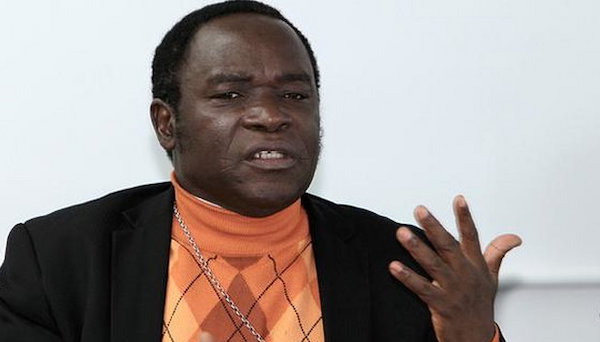Politics
Nigeria’s insecurity, a self-inflicted wound from yesterday, it’ll get worse, says Bishop Kukah

In a scathing critique of the Nigerian government, Reverend Matthew Kukah, the Catholic Bishop of Sokoto Diocese, has attributed the current wave of banditry and terrorism to the country’s neglect of education.
Delivering a lecture at the Rotary International conference in Abeokuta, Ogun State, on Friday, Bishop Kukah stated, “We are facing the challenges that are the consequences of our children not having education.
“Now everybody is fearing bandits, everybody is fearing Boko Haram, we are reaping today what we sowed yesterday and it will actually grow worse.
“We have millions of children, at least between 10 and 12 or 15 million children that are on the streets who are begging, each of these children are growing by the day, the Almajiri that is 10 now, in 10 years time he will be 20 years so unless we quickly do something the situation may go worse,” he stated.
Kukah blamed the government’s lack of investment in education for creating a generation susceptible to radicalization and criminal activity.
READ ALSO:Bishop Kukah warns of rising ethnic, religious biases in Nigerian universities
He highlighted the plight of millions of “Almajiri” children, traditionally sent for Islamic education but often neglected and left on the streets. “These children are growing by the day,” he warned. “Unless we quickly do something, the situation may go worse.”
The Bishop’s comments come amidst a surge in banditry, particularly in northern Nigeria. Armed gangs have terrorized communities, engaging in kidnappings, cattle rustling, and killings. Boko Haram, the Islamist terrorist group, also continues to pose a significant threat.
Kukah’s statements are likely to spark debate. While some may agree with his assessment of the education system’s shortcomings, others might point to the complex socio-economic and political factors contributing to insecurity.
The Bishop’s call for action, however, resonates with a growing concern among Nigerians. Many citizens demand a more proactive approach from the government to address the root causes of banditry and terrorism, alongside robust security measures.
The onus now falls on the authorities to acknowledge the challenges raised by Bishop Kukah and implement effective strategies to improve education access, particularly in disadvantaged areas. Investing in the future generation’s education is crucial not just for economic development but also for fostering peace and security in Nigeria.
Join the conversation
Support Ripples Nigeria, hold up solutions journalism
Balanced, fearless journalism driven by data comes at huge financial costs.
As a media platform, we hold leadership accountable and will not trade the right to press freedom and free speech for a piece of cake.
If you like what we do, and are ready to uphold solutions journalism, kindly donate to the Ripples Nigeria cause.
Your support would help to ensure that citizens and institutions continue to have free access to credible and reliable information for societal development.




























